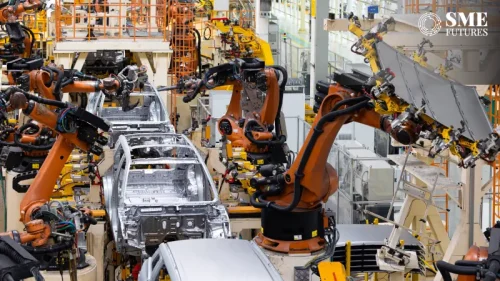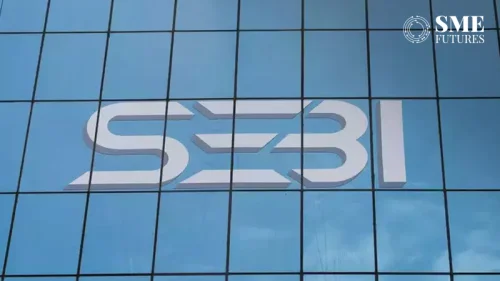In a promising revelation, the online retail sector is projected to reach an impressive $350 billion over the next five years. The surge is attributed to factors such as increased smartphone penetration, digital adoption, and government initiatives like Digital India and One District-One Product. FIRST India, a division of India SME Forum, shared pivotal findings from a recent study on the impact of e-commerce during the festive season in 2023.
The study, based on a nationwide survey of over 32,000 respondents, revealed a significant surge in online retail, with established platforms such as Amazon and Flipkart emerging as preferred choices among MSMEs for sales.
Nearly 80% of sellers generated their revenues from online and e-commerce sales, with 60% doubling their sales and 90% registering a minimum 30% YoY increase in online sales. This shift in strategy not only benefited individual businesses but also had a cascading effect on the entire ecosystem, leading to increased inventories, new product launches, and heightened advertising spends.
The festive season preparation showcased MSMEs’ bullish approach, with over half stocking up on inventory, a third launching new products, and a quarter increasing their advertising spends.
Sellers also showed a growing preference for e-commerce due to the benefits offered, citing higher sales volume (86%), wider customer reach (82%), and elevated brand recognition (44%) as the top three reasons. Trust remained a cornerstone in the e-commerce ecosystem, with wide customer reach (100%), company reputation (99%), and a robust seller ecosystem (95%) cited as the top three reasons driving seller trust in e-commerce websites. MSMEs adopting an omni-channel strategy, seamlessly integrating online and offline channels, emerged as the success story of the festive season.
Vinod Kumar, President, India SME Forum, and Trustee and President, FIRST India, said, “In this era of exponential rise, the synergy between innovation and regulation becomes paramount in shaping the future of India’s economic landscape. We envision a scenario where MSMEs not only survive but thrive, leveraging the transformative power of e-commerce. A majority of MSMEs, registering a remarkable 30% increase in their online sales year-on-year, signal a paradigm shift in the way business is conducted. From an estimated ₹90,000 crores this year, we anticipate festive sales to surge beyond 100K crores in 2024, as we continue guiding these enterprises towards a trajectory of prosperity by seamlessly integrating offline and online retail.”
Geographically, Tier 2 and Tier 3 cities took center stage, outpacing metros in order traffic and signaling a significant shift in consumer behavior. The findings highlight the widening geographical reach of e-commerce in India and the growing trust of consumers in Tier 2, Tier 3, Tier 4, and rural areas.
Diversification of sales channels emerged as a trend, with 90% of retailers relying on e-commerce marketplaces. Amazon emerged as the undisputed champion among e-commerce platforms, commanding a 38% preference, followed by Flipkart (20%), Myntra (15%), and Meesho (12%). Notably, 50% utilized social media platforms like Instagram, and 41% leveraged third-party apps like WhatsApp for sales.
As MSMEs continue to ride the e-commerce wave, the research also emphasised the challenges in the e-commerce space, the need for policy reforms for a conducive ecosystem, and collaboration between policymakers and industry stakeholders. 60% of the sellers expressed concerns over regulatory biases favouring offline channels, threats to established players, and burdensome compliance measures. Additionally, worries included capital requirements for online listing (41%) and consumer return habits (36%), with 33% advocating for policy changes in GST and Returns guidelines.
With retail development extending to tier II and III cities, India’s long-term consumption and retail growth provide a strong foundation for future growth. These insights are vital for policymakers and industry stakeholders navigating the evolving economic landscape. Addressing challenges faced by sellers not only refines the e-commerce experience but also contributes to sustained growth, cementing the sector’s pivotal role in shaping India’s projected $2 trillion economic future by 2032.











